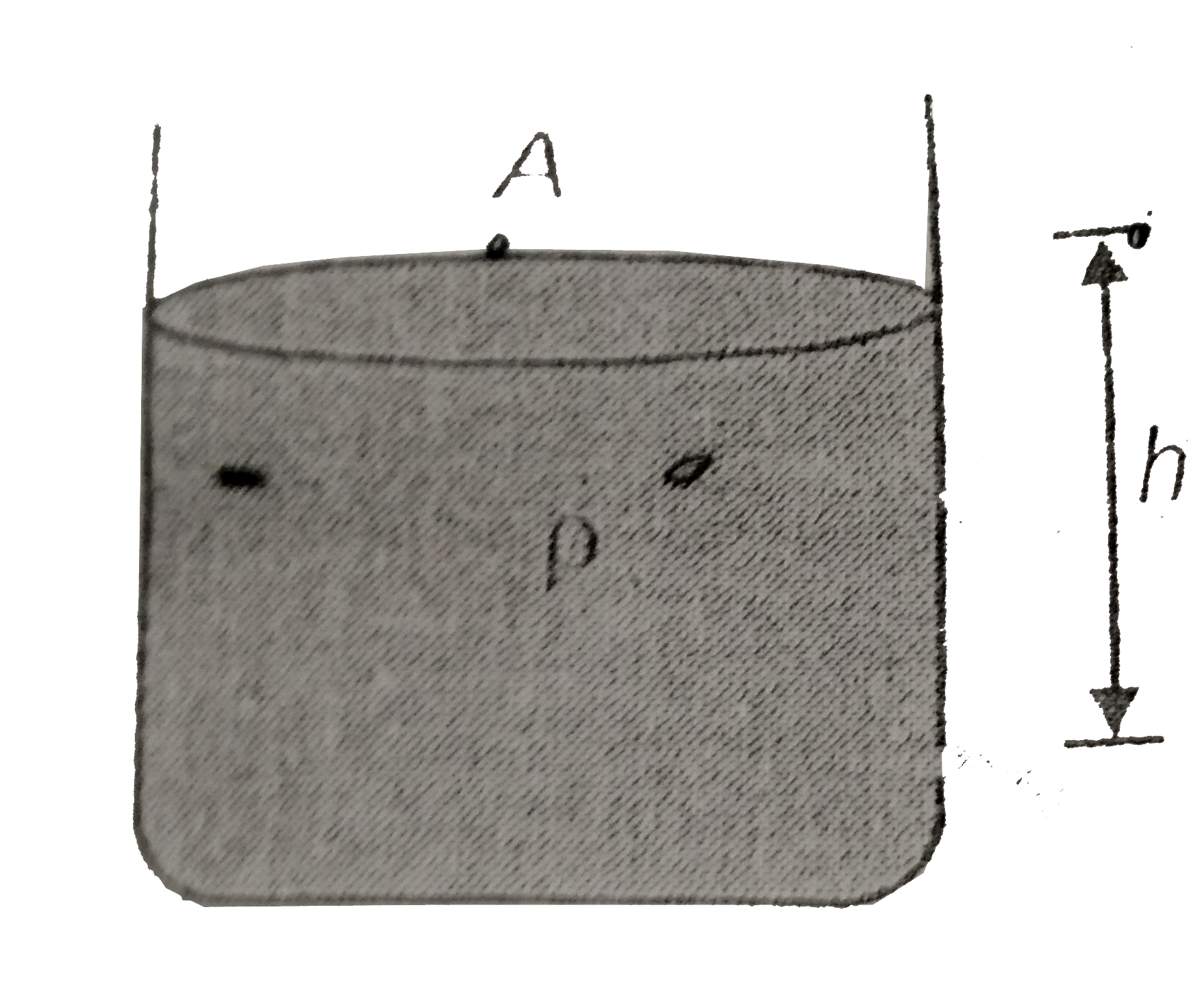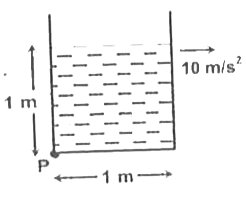The velocity of efflux of a liquid through an orifice in the bottom of a tank does not depend upon
density of liquid
height of the liquid column above orifice
acceleration due to gravity
None of the above
The correct Answer is:A
To solve the problem, we need to analyze the factors that affect the velocity of efflux of a liquid through an orifice at the bottom of a tank. The velocity of efflux can be derived from Torricelli's theorem, which states that the velocity (v) of a fluid flowing out of an orifice under the influence of gravity is given by the equation:
v=√2gh
where:
- v = velocity of efflux,
- g = acceleration due to gravity (approximately 9.81m/s2),
- h = height of the liquid column above the orifice.
1. Identify the Variables:
- The velocity of efflux depends on the height of the liquid column (h) and the acceleration due to gravity (g).
2. Analyze the Equation:
- From the equation v=√2gh, we can see that the velocity is directly related to the height of the liquid column (h) and the gravitational acceleration (g).
3. Determine Independence from Density:
- The equation does not include the density of the liquid (ρ). This indicates that the velocity of efflux is independent of the density of the liquid.
4. Conclusion:
- Therefore, the velocity of efflux does not depend on the density of the liquid.
Final Answer:
The velocity of efflux of a liquid through an orifice in the bottom of a tank does not depend upon the density of the liquid.
- v = velocity of efflux,
- g = acceleration due to gravity (approximately 9.81m/s2),
- h = height of the liquid column above the orifice.
- The velocity of efflux depends on the height of the liquid column (h) and the acceleration due to gravity (g).
- From the equation v=√2gh, we can see that the velocity is directly related to the height of the liquid column (h) and the gravitational acceleration (g).
- The equation does not include the density of the liquid (ρ). This indicates that the velocity of efflux is independent of the density of the liquid.
- Therefore, the velocity of efflux does not depend on the density of the liquid.
The velocity of efflux of a liquid through an orifice in the bottom of a tank does not depend upon the density of the liquid.
Topper's Solved these Questions
- FLUID MECHANICSBook:DC PANDEY ENGLISHChapter:FLUID MECHANICSExercise:Check point 13.3
Explore 10 Videos
- FLUID MECHANICSBook:DC PANDEY ENGLISHChapter:FLUID MECHANICSExercise:Check point 13.4
Explore 10 Videos
- FLUID MECHANICSBook:DC PANDEY ENGLISHChapter:FLUID MECHANICSExercise:Check point 13.1
Explore 15 Videos
- EXPERIMENTSBook:DC PANDEY ENGLISHChapter:EXPERIMENTSExercise:Subjective
Explore 15 Videos
- GENERAL PHYSICSBook:DC PANDEY ENGLISHChapter:GENERAL PHYSICSExercise:INTEGER_TYPE
Explore 2 Videos
Similar Questions
The pitch of sound does not depend upon :
View SolutionThe volume of a liquid flowing per second out of an orifice at the bottom of a tank does not depend upon
View SolutionThe enthalpy of reaction does not depend upon:
View SolutionThe velocity of efflux of a fluid through an orifice 15 cm below the fluid surface (which is open to the atmosphere) is [Take g = 10 m s−2]
View SolutionThermal stress does not depend upon
View SolutionThe drift velocity does not depend upon
View SolutionIf velocity of efflux is v and area of orifice is A0 then

View SolutionCyclotron frequency does not depend upon.
View SolutionA container is filled with water , accelerating with acceleration 10m/s2 , along + ve X - axis on a smooth horizontal surface . The velocity of efflux of water at a point P t the bottom of the tank and near its left most corner is

View SolutionThe capacitance of a capacitor does not depend upon
View Solution